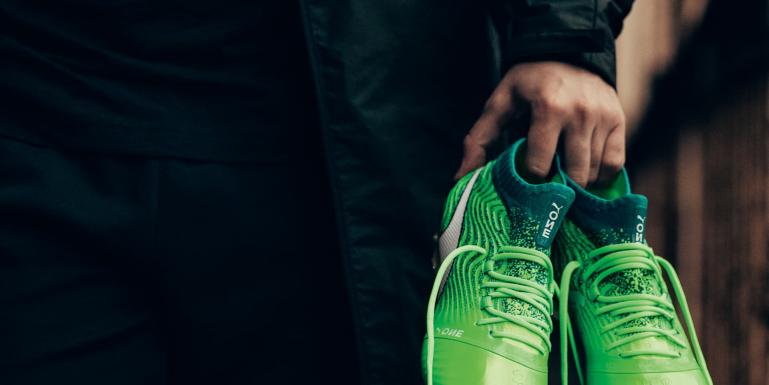Sportlifestyle company PUMA has extended its range of sustainable products and launched African-themed fashion collections, featuring apparel made of sustainable cotton from sub-Saharan countries. By using this high-quality raw material, PUMA supports the Aid by Trade Foundation’s “Cotton Made in Africa” initiative which helps improving living conditions of African cotton farmers and their families and makes a solid contribution to the protection of the environment.

In the light of PUMA’s ongoing and long-term commitment for the African football as the official supplier to eleven national teams across the continent, PUMA launched the African-themed fashion collections “From the PUMA Archives”, “Africa United” and African Football Fan Wear in the run-up to the World Cup 2010 in South Africa which is a great starting position for the tournament. From July 2009 on, the collections will be available in PUMA stores worldwide. The products such as T-shirts and sweatshirts will carry the „Cotton Made in Africa“ label.
In the second half of the year 2009, PUMA will produce 2% of its entire apparel collection with “Cotton Made in Africa” – including fan jerseys for the African National teams.
“We are proud that our African-themed collections have been created with African involvement which makes them much more authentic and more desirable,” said Jochen Zeitz, Chairman and CEO of PUMA. “PUMA’s commitment to Africa now goes beyond our position as the leading supplier for African Football Teams. Following our vision of creating a better world, we do our part to improve quality of life and environmental standards in Africa by supporting “Cotton Made in Africa”.
Cotton in Africa is produced without artificial irrigation due to the poverty, the lack of infrastructure and low water reserves. An efficient use of rainfall is therefore all the more important. The „Cotton Made in Africa“ project wants to create an efficient management of farms by offering training and advice. Techniques such as mulching to keep the soil covered and to prevent such a high-level of evaporation or balanced fertilisation are crucial. Farmers participating in the „Cotton made in Africa“ project are taught the relevant skills in facilities such as „Farmer Field Schools“.
PUMA is striving to integrate the idea of eco-efficiency into its product cycle, in order to harmonise business practice and the availability of natural resources. PUMA, for example, was the first sports goods company to ban PVC from its product range. Although PVC has very good technical characteristics, PUMA decided to take this step as the production and disposal of PVC can cause damage to the environment.